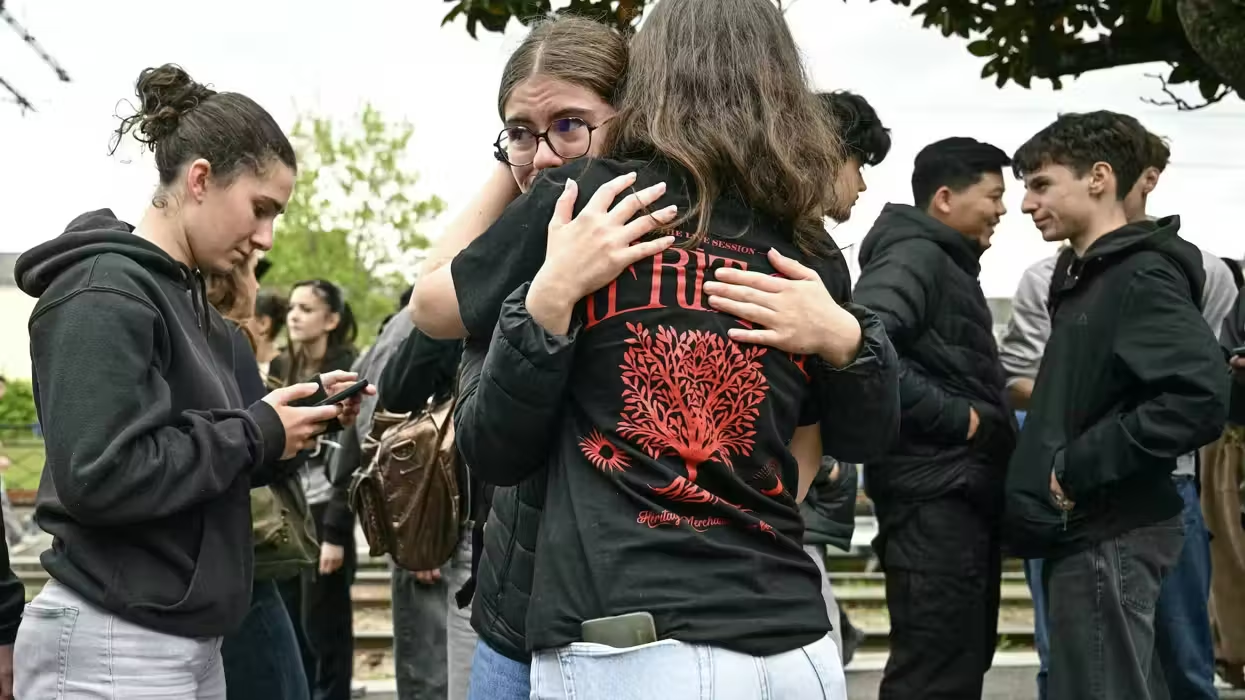Senators from both parties indicated over the weekend that they may try to push for new gun legislation that focuses on preventing mentally ill people from owning guns. That new focus emerged just hours after a 22-year old killed six people and wounded several others in California.
Elliot Rodger stabbed three of his roommates and used a semi-automatic pistol to kill three others. Rodger, the son of "Hunger Games" assistant director Peter Rodger, bought the guns legally in California, even though local officials said after the shooting that Rodger was "severely mentally disturbed."
 Sen. Richard Blumenthal, D-Conn. (right), and other senators indicated a new bill may be in the works linking gun crimes to mental health. (AP Photo/Lauren Victoria Burke)
Sen. Richard Blumenthal, D-Conn. (right), and other senators indicated a new bill may be in the works linking gun crimes to mental health. (AP Photo/Lauren Victoria Burke)
On Sunday, Sens. Richard Blumenthal (D-Conn.) and John Thune (R-S.D.) indicated that some agreement might be reached on a bill dealing with the mental health aspects of gun crimes. On CBS's "Face the Nation," Blumenthal said he may try to "reconfigure" gun legislation that failed in the Senate last year to focus on mental health.
Blumenthal said Congress must act to "keep guns out of the hands of dangerous people who are severely troubled or deranged like this young man was, and provide resources."
Thune said on the same program that there may be room for agreement in this area. He said Congress should "ensure that we have policies in place that allow people with mental health issues like these to be diagnosed and to be treated."
Sen. Dianne Feinstein (D-Calif.), a long-time gun control advocate, released a separate that said Congress should work on the link between gun crimes and mental health.
"We must ask ourselves if an individual whose family called police with concerns about mental health, who is receiving therapy and who has had several run-ins with police should be allowed to own multiple firearms and hundreds of rounds of ammunition," she said. "When anyone, no matter their mental health or history, can so easily obtain any gun they want and as many as they want — we must recognize there is a problem."
But it's not immediately clear that the two parties can find a way forward on exactly how to keep guns out of the hands of the mentally ill. Democrats have broadly favored expanded background checks to reach this result.
Over the weekend, Feinstein blamed the National Rifle Association for opposing background checks every time a gun is purchased. "Unfortunately the NRA continues to have a stranglehold on Congress, preventing even commonsense measures like universal background checks that have overwhelming support," she said.
Republicans have been more open to legislation that provides new federal resources to treat the mentally ill. Rep. Tim Murphy (R-Pa.) proposed legislation in late 2013 aimed at ensuring people who need mental health treatment can get it, an idea he said was meant to help curb gun violence.
That bill has stalled in the House, but ideas like those in Murphy's proposal are favored by many Republicans who want to avoid legislation that erodes people's Second Amendment rights.
In recent years, the National Rifle Association has indicated a similar preference. In 2013, NRA Executive Vice President Wayne LaPierre said federal resources are needed to ensure the mentally can be institutionalized, and therefore given no chance to buy a weapon.
If this debate over more treatment versus more background checks proves intractable, it could lead to a repeat of Senate efforts last year, when a gun control bill had to be pulled from consideration.
In 2013, Senate Democrats tried to advance a gun control bill that they hoped would be an answer to the 2012 school shooting in Newtown, Connecticut. But that bill stalled, in part because the parties failed to agree on how far to broaden background checks.
Many Republicans also feared that bill was a first step toward creating a national gun registry.
Even before the Santa Barbara shooting, Democrats indicated an interest in treating gun violence like a public health issue.
On Thursday, Sen. Ed Markey (D-Mass.) and Rep. Carolyn Maloney (D-N.Y.) proposed legislation to give the Centers for Disease Control and Prevention $10 million a year for six years to study the causes of gun violence and how to stop it. That bill could become a piece of any new legislation senators develop.
But splits appear likely to continue on this issue as well. The NRA was instrumental in limiting CDC research on gun violence, and claimed most of that research was aimed at creating new justifications for banning guns.

 Sen. Richard Blumenthal, D-Conn. (right), and other senators indicated a new bill may be in the works linking gun crimes to mental health. (AP Photo/Lauren Victoria Burke)
Sen. Richard Blumenthal, D-Conn. (right), and other senators indicated a new bill may be in the works linking gun crimes to mental health. (AP Photo/Lauren Victoria Burke)






